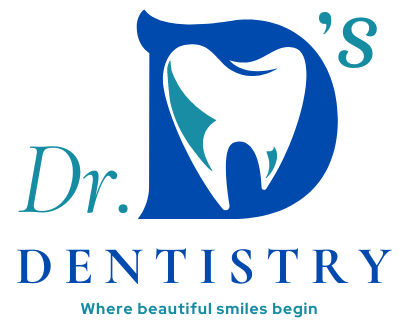Introduction to Dentistry and Its Challenges
Being a dentist isn’t just about fixing teeth; it’s a calling that demands precision, compassion, and deep expertise. Dentists carry significant responsibilities that often go unnoticed, making their seriousness a necessity rather than a choice.

The Intricate Nature of Dental Care
Dentistry is more than what meets the eye. From identifying cavities to performing root canals, the processes demand a detailed understanding of anatomy and an ability to diagnose hidden issues. It’s like solving a puzzle where every piece matters, and no room for error exists.
Balancing Science and Art
A smile is both functional and aesthetic. Dentists are not only healthcare providers but also artists who craft each tooth to ensure harmony with the rest of the mouth. Achieving this balance is no small feat, requiring focus and dedication.
The Weight of Patient Trust
A Dentist’s Responsibility to Their Patients
Patients put immense trust in their dentists, expecting them to provide accurate diagnoses and effective treatments. For dentists, any misstep could lead to severe health consequences for their patients, making their role highly demanding.
Handling Dental Anxiety in Patients
Many people fear the dentist’s chair, and managing this anxiety requires a calm, empathetic approach. Dentists must remain professional and patient while ensuring the individual feels safe—a skill that demands emotional intelligence and seriousness.
Education and Expertise in Dentistry
The Years of Training Required
To even begin practicing, dentists undergo years of rigorous education. From undergraduate degrees to dental school and specialized training, this journey requires dedication, discipline, and a serious commitment to mastering the craft.
Staying Updated With New Technology
The dental field evolves constantly, with advancements like 3D imaging and laser treatments becoming commonplace. Dentists must stay updated to provide the best care, which involves ongoing learning and adopting new techniques.
The Complexity of Oral Health
How Oral Health Impacts Overall Health
The mouth is a gateway to the body, and poor oral health can lead to issues like heart disease or diabetes. Dentists are often the first to detect signs of these conditions, emphasizing the importance of their role.
Detecting Life-Threatening Conditions Through Dentistry
Oral exams can uncover signs of cancer, autoimmune diseases, or nutritional deficiencies. Dentists must maintain a sharp eye for these indicators, as early detection can save lives.
Financial and Emotional Strain
The Cost of Dental Equipment and Facilities
Running a dental practice involves hefty investments in tools, sterilization equipment, and state-of-the-art technology. This financial burden adds to the gravity of their work.
Emotional Toll of Patient-Centered Work
Dentists deal with patients in pain, anxious individuals, and even challenging cases of neglect. Balancing empathy with professionalism can be emotionally draining, requiring a serious mindset to stay focused.
The Precision Required in Dentistry
Why Every Millimeter Counts
In dentistry, a tiny error can lead to complications like infections or improper bite alignment. This need for precision leaves no room for a casual approach.
Managing High-Stakes Procedures
From extractions to implants, many procedures have long-lasting impacts on patients’ health. Dentists must remain vigilant to avoid any errors during these high-pressure tasks.
Ethical Considerations in Dentistry
Avoiding Over-Treatment
Dentists must walk the fine line between offering necessary treatments and avoiding excessive or unnecessary procedures. Ethical practice is at the heart of their seriousness.
Building Trust Through Transparency
Being upfront about treatment plans and costs helps establish trust with patients. Dentists understand the importance of honesty, which adds to the weight of their role.
The Future of Dentistry
Innovations Shaping the Field
Technology such as AI-powered diagnostics and robotic-assisted surgeries are revolutionizing dentistry. Adapting to these changes ensures that dentists provide the highest quality care.
How Dentists Adapt to Change
Staying relevant means embracing new methods and updating skills continuously, further emphasizing why dentists take their roles so seriously.
Conclusion
Dentists’ seriousness stems from the complexity and importance of their work. From safeguarding patients’ health to mastering ever-evolving technology, their dedication ensures that everyone enjoys healthy smiles and improved overall well-being.
FAQs
Why do dentists take their job so seriously?
Dentists handle intricate procedures, manage patient trust, and deal with health conditions that could affect overall well-being. Their seriousness ensures accuracy and quality care.
How do dentists manage patient stress?
Dentists use a combination of empathy, communication, and gentle techniques to help patients feel comfortable during their visits.
What makes oral health so critical?
Oral health is directly linked to overall health, with issues in the mouth potentially leading to severe conditions like heart disease or diabetes.
How does technology impact a dentist’s role?
Advancements in technology allow for more accurate diagnostics and minimally invasive treatments, pushing dentists to stay updated constantly.
What are the challenges of being a dentist?
Dentists face financial burdens, high emotional stress, and the need for precision and ethical decision-making, all of which make the role highly demanding.


